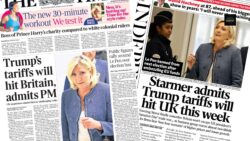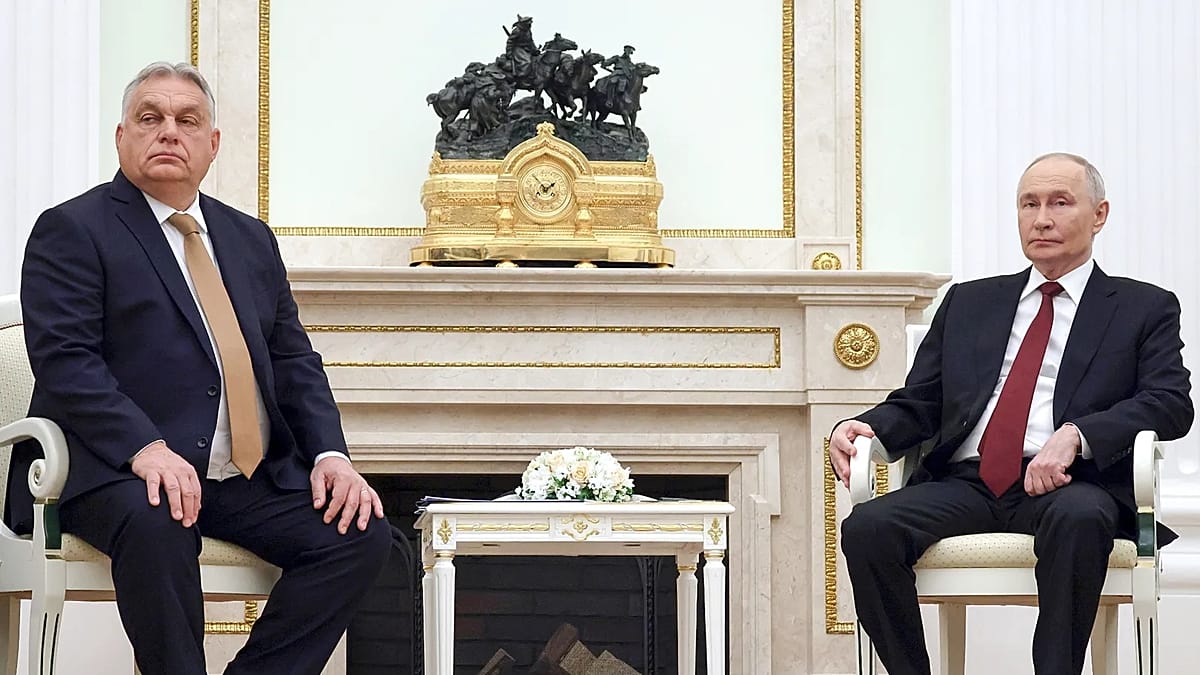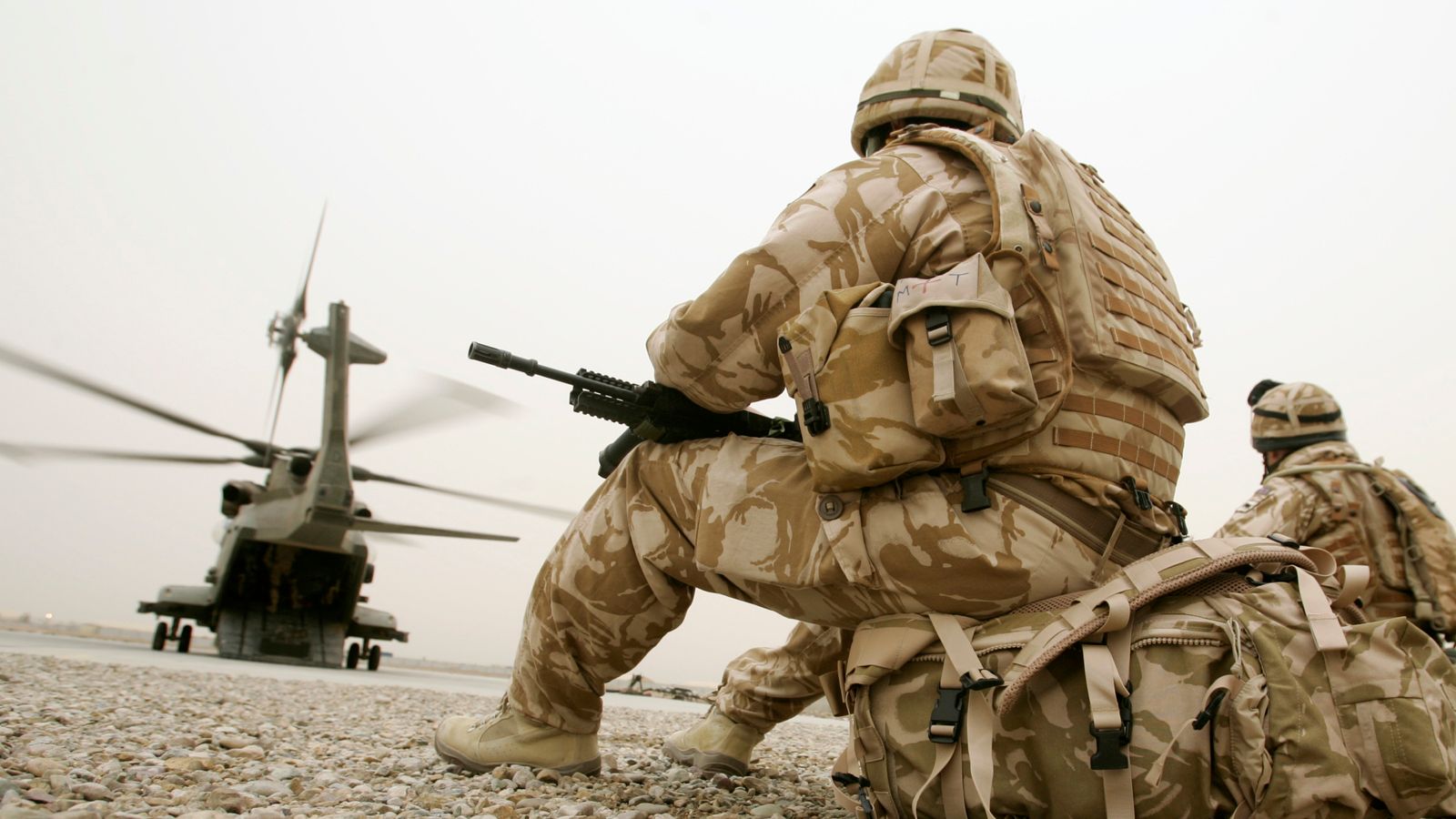There is a lot of politics in the news today, with many headlines (around the world) reporting on the US tariffs set to be announced on Wednesday – tariffs that Trump has said will impact every country. The UK had been hoping to secure an exemption from the tariffs, but yesterday, the prime minister confirmed the UK is set to be impacted by Wednesday’s announcement.
In more bad news for Britain, ‘awful April’ has begun as water bills, energy bills, and council tax have all risen. But today also marks the National Minimum Wage increase that starts today.
Tariffs to hit Britain as ‘awful April’ begins
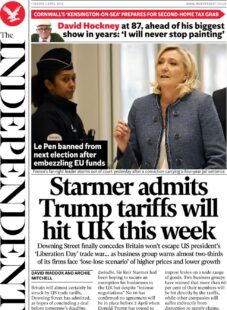
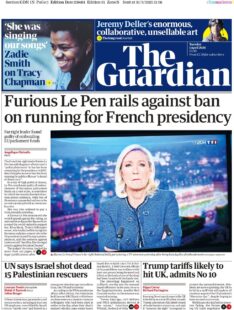
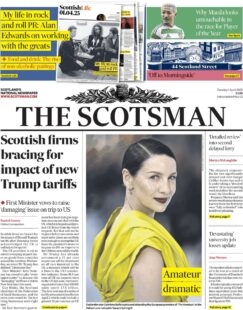
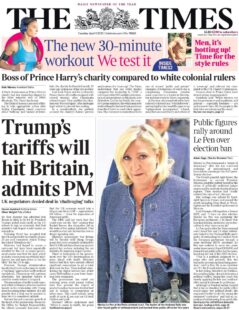
UK ministers prepare for Donald Trump’s tariffs as hopes of trade deal fade
Explainer – The headline shows bias by framing the situation as a loss of hope (“hopes of trade deal fade”), which suggests a negative outlook on the UK’s prospects. It could be seen as emphasising the failure of negotiations rather than presenting the situation in a more neutral, fact-based way. A more balanced headline would highlight the ongoing challenges without implying defeat.
- The FT reports that Downing Street has conceded it is almost certain that US President Donald Trump will include Britain in a new wave of reciprocal global tariffs on Wednesday, with potentially far-reaching consequences for the British economy. Elsewhere the newspaper reports the global stock markets tumble as markets await the full details of Donald Trump’s ‘liberation day’ tariffs.
Trump tariffs likely to hit UK, admits No 10
Explainer – The headline shows bias by using the phrase “admits No 10,” which can imply reluctance or a sense of guilt on the part of the UK government. This framing suggests that the government is acknowledging an undesirable reality rather than neutrally reporting a situation. A more balanced headline would state that the government acknowledges the likely impact without the suggestion of an admission of fault.
- “Trump tariffs likely to hit UK, admits No 10,” the Guardian reports. Downing Street says it ‘reserves the right’ to respond to protect national interest when US levies are announced this week, it adds.
Trump’s tariffs will hit Britain, admits PM
Explainer – The headline shows bias by using the phrase “admits PM,” which implies that the Prime Minister is reluctantly acknowledging an unfavorable truth. This framing suggests a sense of responsibility or defeat, rather than simply reporting the situation. A more neutral phrasing would focus on the fact that the tariffs will affect Britain, without implying any admission of fault
- The Times says tariff negotiations with the Trump administration are “challenging”. The UK had hoped to secure an exemption from the global tariffs but No 10 has accepted that the UK will probably face tariffs of up to 20%, the paper adds.
Trump: No free trade without free speech
Explainer – The headline shows bias by presenting Trump’s statement as a definitive or unquestionable principle (“No free trade without free speech”), which could imply that his view is an accepted truth rather than a subjective political stance. A more neutral phrasing would highlight that this is Trump’s position, rather than framing it as an absolute statement.
- The Daily Telegraph reports that one of the possible terms the US president might include for securing a trade deal with the UK includes “free speech.” The paper says the case of an anti-abortion activist who was banned from holding a sign outside an abortion clinic in Bournemouth is now making international headlines as – in a rare move – the activist’s case was highlighted as “concerning” by the US state department.
Scottish firms bracing for impact of new Trump tariffs
Explainer – The headline shows bias by using the phrase “bracing for impact,” which conveys a sense of fear or inevitability, potentially exaggerating the severity of the situation. A more neutral phrasing would focus on the potential effects of the tariffs without implying alarm or undue concern.
- The Scotsman says Scottish firms are braced for the impact of Donald Trump’s tariffs after Downing Street acknowledged the UK is unlikely to be spared. First Minister John Swinney has vowed to take “every opportunity” to discuss the “damaging” tariffs on a visit to New York later this week.
Defiant Rayner tells UK firms: my new rights for workers will help economy
Explainer – The newspaper headline shows bias by using the word “defiant,” which conveys a strong, confrontational tone and may suggest that Rayner is aggressively standing her ground. This choice of language could colour her stance as more combative than simply presenting her position. A more neutral phrasing would focus on her proposal for workers’ rights without implying a confrontational attitude.
- Angela Rayner writes in the i newspaper about the increase in minimum wage that comes into effect today. The deputy PM has hit back at UK firms, the paper says, which have been critical of the government’s plans to axe zero-hour contracts and expand sick pay.
Council tax and energy bill rises hit single parents hardest
Explainer – The headline shows bias by using the phrase “hit single parents hardest,” which evokes a sense of unfairness and hardship, potentially exaggerating the impact. A more neutral phrasing would highlight the statistical or factual basis for the claim without framing it in such a dramatic way, focusing on the specific effects rather than implying undue emphasis on hardship.
- BBC News reports a series of essential household bills are set to rise in April – including water bills, energy bills and council tax. It has been dubbed “awful April”.

